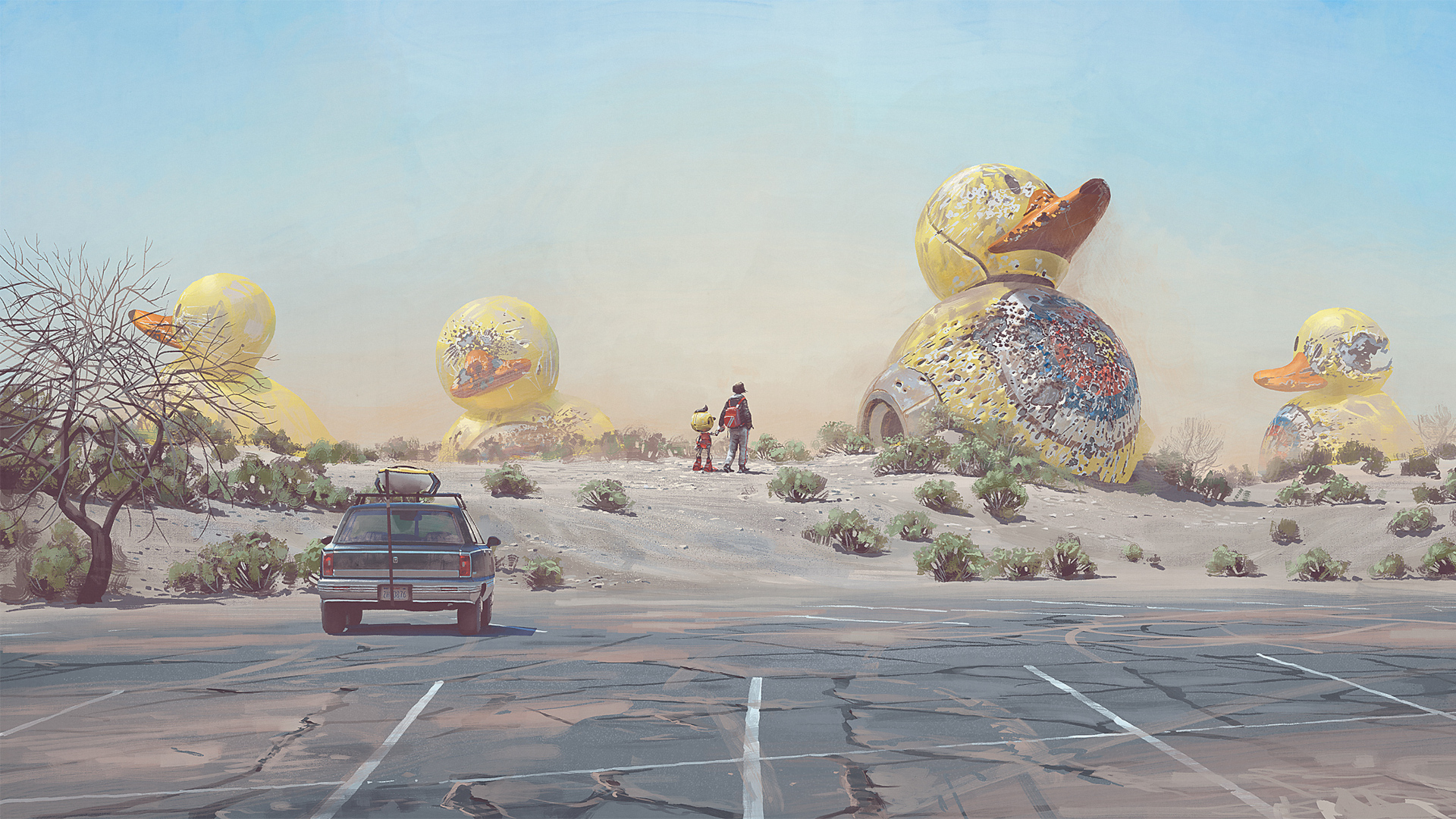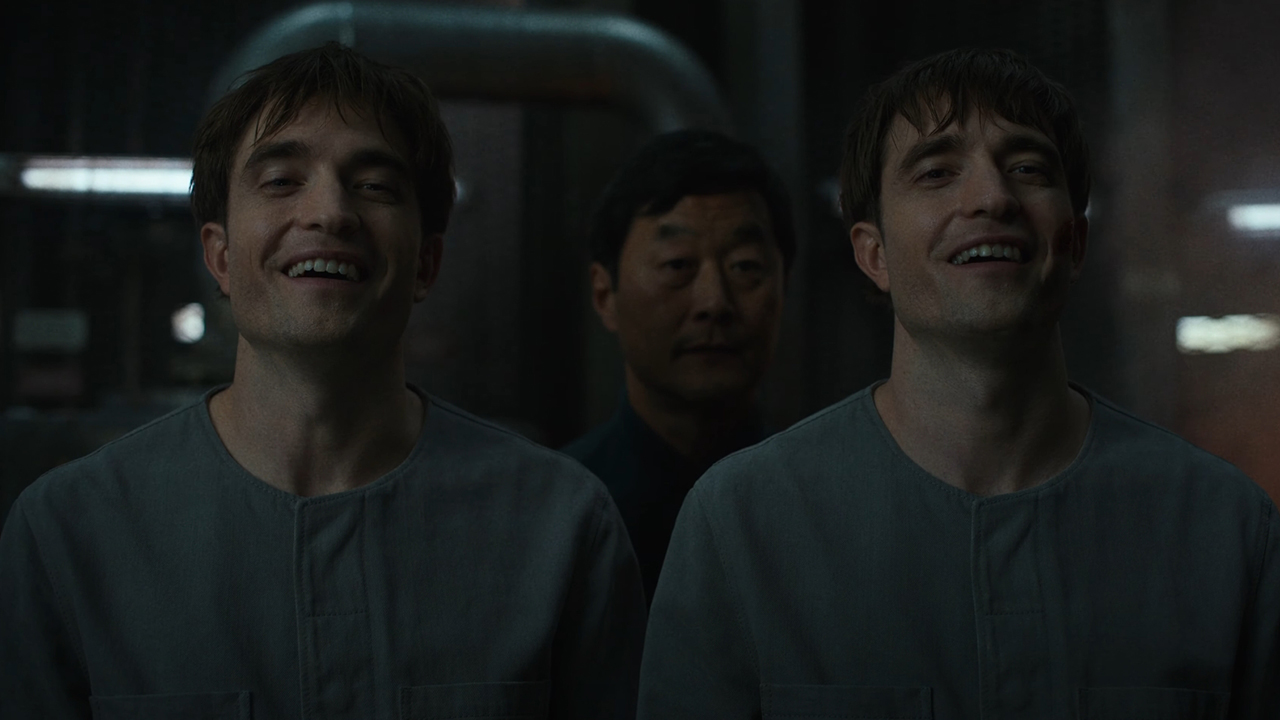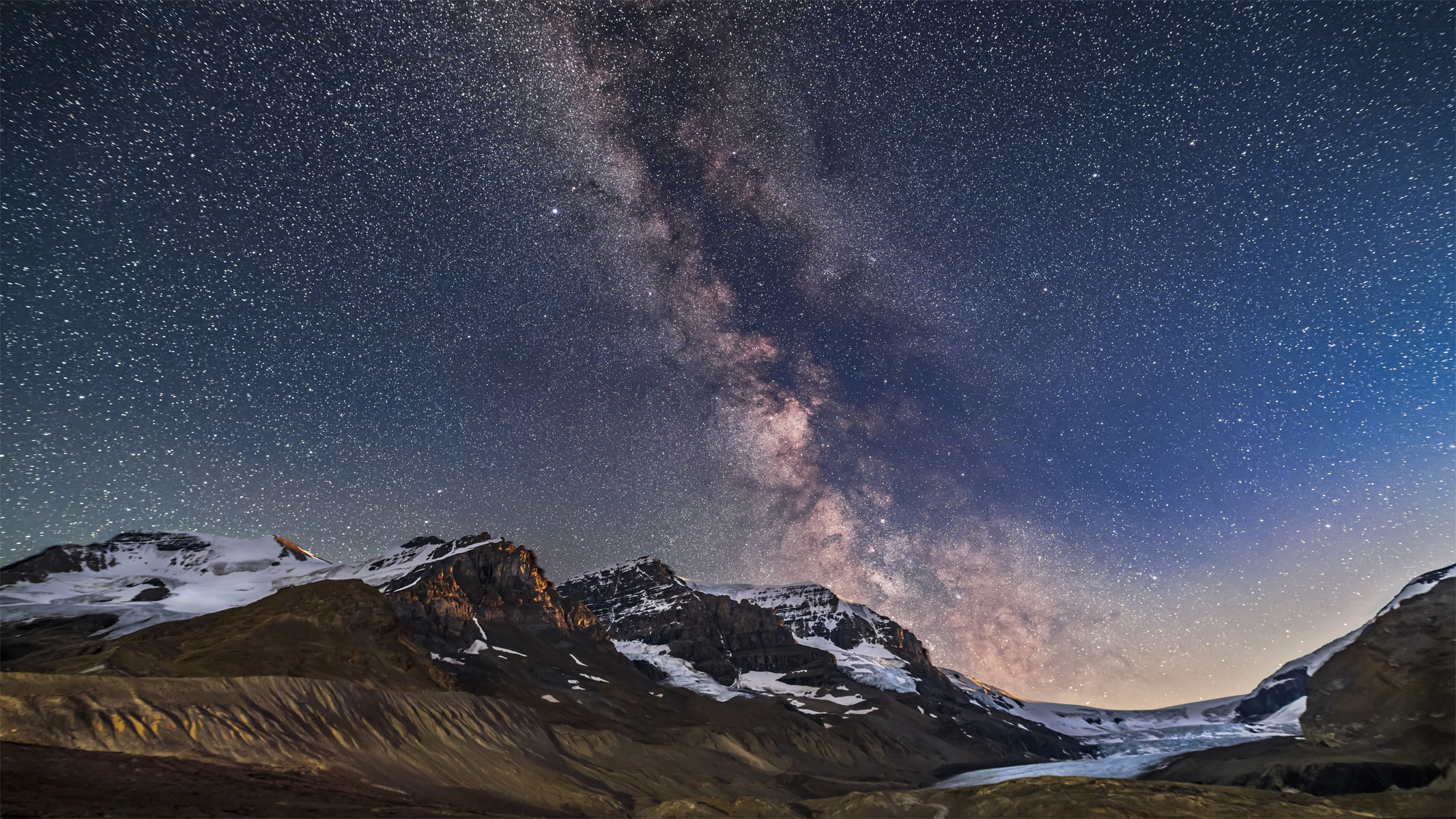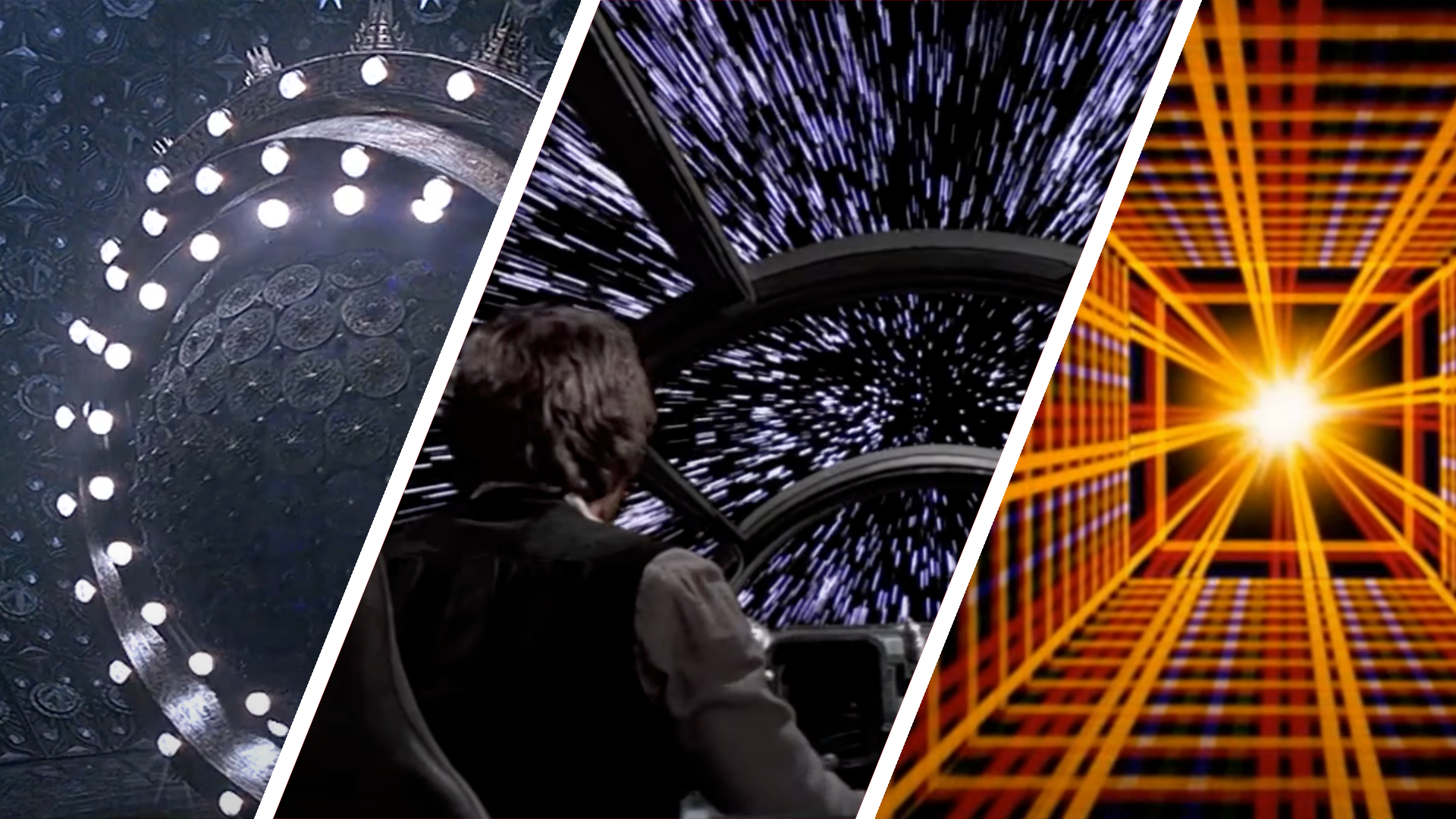How realistic are the terraformed planets of Destiny 2?
If we were to terraform the solar system, would our worlds look like they do in Destiny 2?
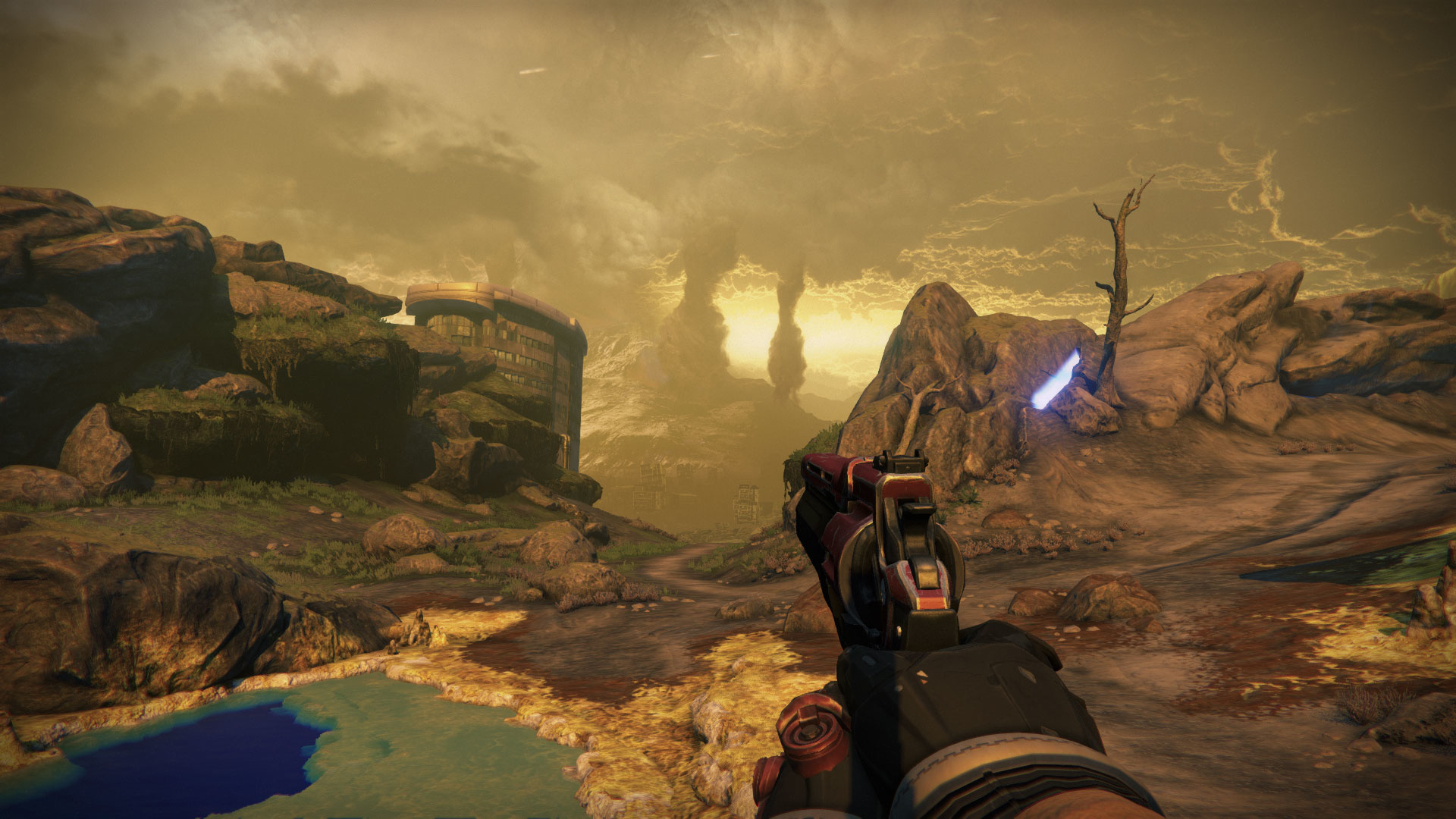
Destiny 2’s science fiction future several hundred years from now includes a human race, and a couple sort-of human subspecies, colonizing the solar system at large. Miraculously, some of these planets we get to explore are alien-like worlds far beyond the realms of possibility… or are they?
The science behind terraforming is mostly a theoretical science that has not been executed by humankind yet, but has been vastly explored in movies – such as the Alien universe – as well as literature and TV shows, like The Expanse (one of the best sci-fi TV shows based on books). And of course, video games and board games too (we’re looking at you, Terraforming Mars).
However, the video game Destiny 2 may have some more realistic portrayals than you might expect of what a terraformed planet might look like. So, here’s how each of the current planets in Destiny 2 stack up in how terraforming might transform these worlds.
If you're looking to get into Destiny 2 and you're not sure where to start, be sure to check out Destiny 2 beginner's guide for advice on how to kick off your adventure.
Venus
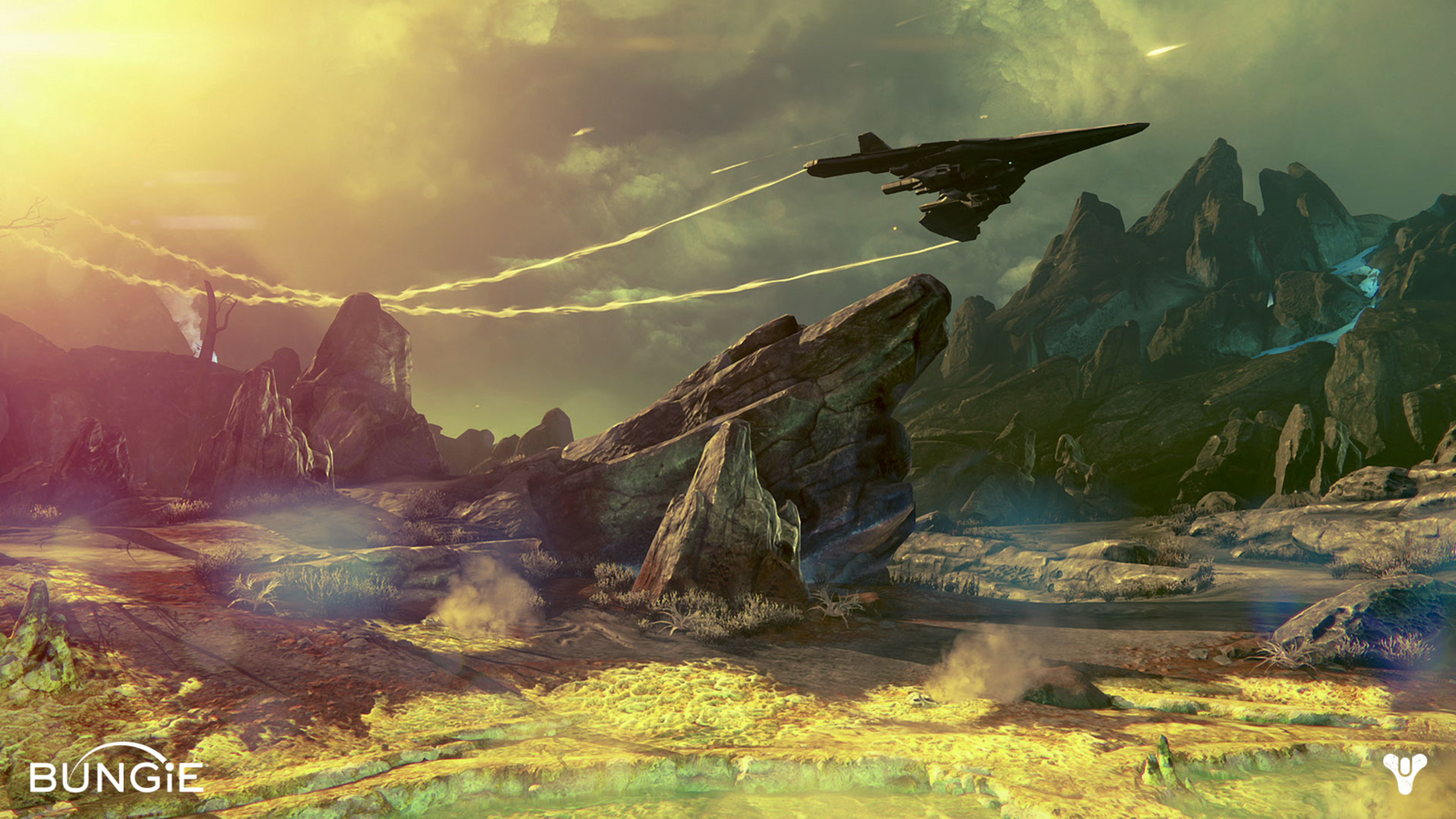
Seen briefly in Destiny 2 and a main destination in the first Destiny, Venus is a lush jungle world with almost constant storms and a thick fog keeping visibility to a minimum. While you’d think stepping outside in a Venusian storm would mean your skin would be dissolved by the acid rain, in Destiny’s case that’s not what happens.
In Destiny’s timeline, the Traveler transformed Venus’ atmosphere to something similar to Earth’s, if the whole planet were a rainforest. The magic energies also blessed the planet with exotic plant and animal life, granting people the ability to breathe largely without difficulty in the open air. However, after the Traveler left and sometime after the Collapse – the cataclysmic event where a mysterious force nearly wiped out all of mankind in the solar system and the Traveler with it – Venus has become a harsher environment with “...vents that blasted sulfuric gases” and lightning storms plaguing the skies above.
Barely habitable, Venus sits somewhere between a lush garden and the sickly yellow hellscape it once was. Efforts of the post-Collapse fleets do portray some kind of project to restart or complete the terraforming of Venus, but this story has yet to bear any real fruit. Like in this video by Kurzgesagt that explains the process of terraforming Venus step-by-step, it seems like the Traveler changed Venus’ atmosphere by converting the carbon dioxide through chemical reactions and cooled the planet to a point where the temperature was habitable.
Then there was the miraculous blessing of the Light that advanced evolution over the course of a few centuries rather than millennia or eons, so life quickly appeared. Somewhere along the lines, the terraforming was halted, or reversed, by something and Venus became this in-between world. So, you could survive the atmospheric pressures of Venus, but you might not want to be breathing the air for too long due to the excessive presence of sulphur in the air from the geothermal vents.
Appearance-wise, the planet makes a lot of sense with its yellow sky, the rocky ground mixed with jungle life, and the deserts out in the fictional wasteland areas of Venus. What we see portrayed here in Destiny 2 is very similar to what little we’ve seen of Venus’ real-life surface, thanks to various space missions like the Soviet Venera-13. The mix of fantasy and realistic portrayals of this otherwise wicked landscape give Bungie’s depiction of a colonized Venus a rather good outlook, apocalypse from beyond our galaxy be damned.
Mars
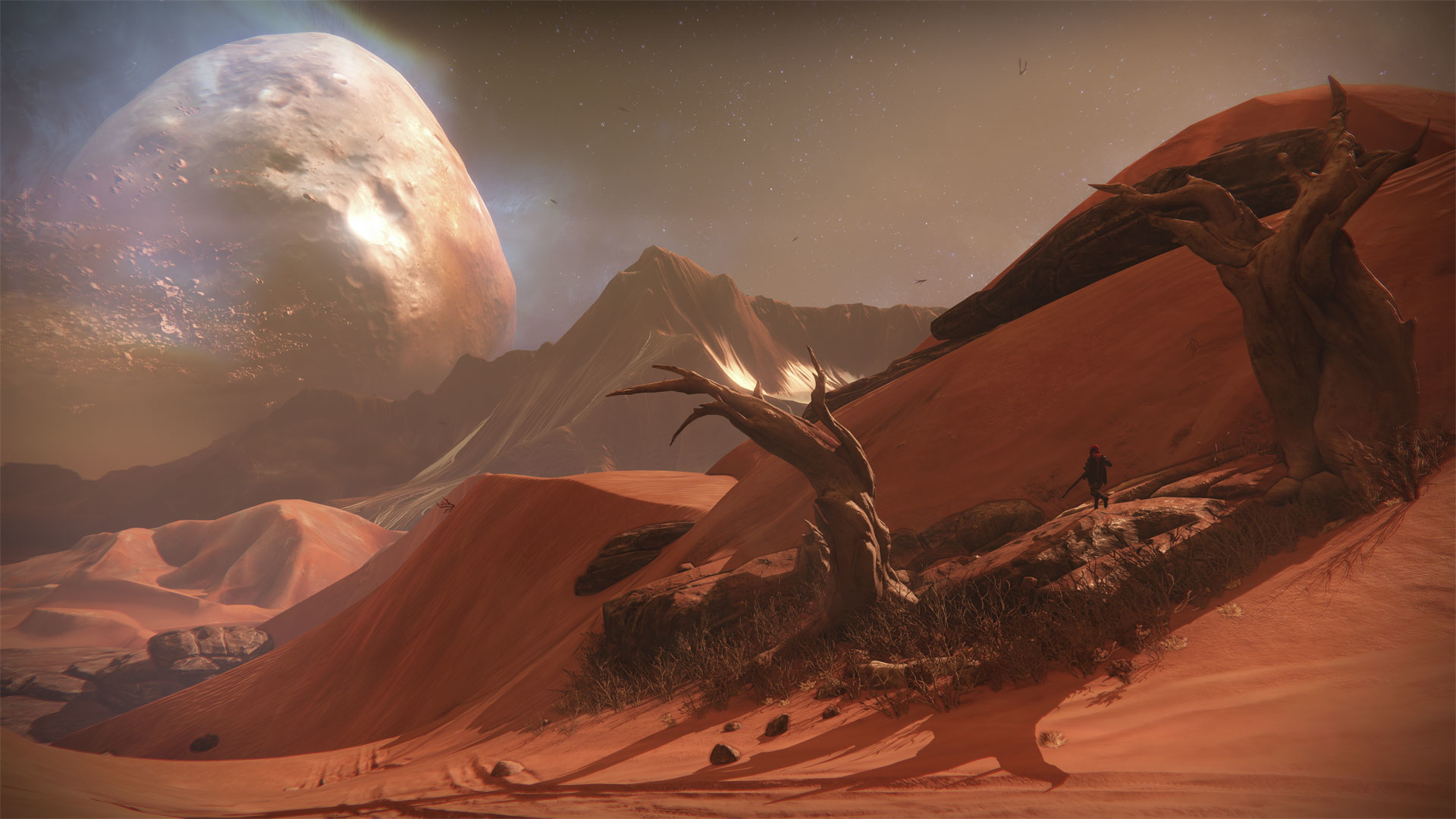
Appearing in both Destiny and Destiny 2, up through to the launch of the expansion Beyond Light in 2020, Mars was the classic desert-like destination video games are known for. Harsh windstorms whipping around ruins of buildings, red sand dunes piled up in the streets, and a pale white sky like midday in Death Valley paints a rather grim picture for this planet.
Even though the first cutscene in Destiny from 2014 showed that the Traveler did terraform Mars by introducing an atmosphere and even rain, the unrelenting winds and sands didn’t recede at all. Even centuries after the initial colonization of Mars, Destiny 2 depicts constant severe winds and desert conditions despite a habitable atmosphere for humans. Plant life was at least present at some point, with petrified trees and weeds scattered about the environment.
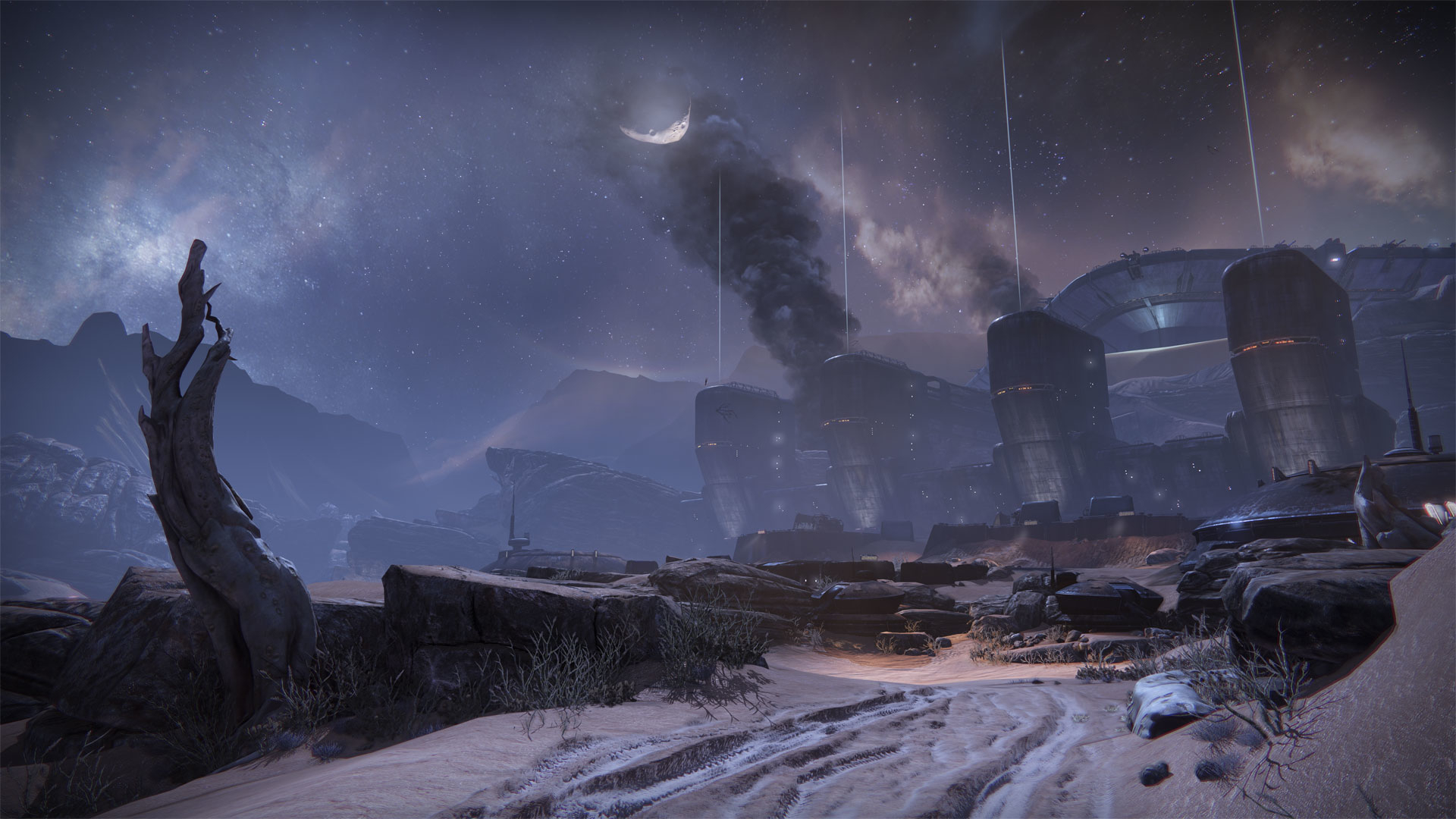
Comparing the conditions of a terraformed Mars to what we’ve seen from real life expeditions to the red planet, it’s entirely feasible that a somewhat failed terraforming of Mars would look like how Destiny portrays it. No matter how much you make it rain, the red dirt would be pretty much everywhere because of all the iron in the surface soil. Images from high-profile missions like the Curiosity rover or the Viking lander show a desert landscape with reddish, rocky soil and a bright sky during the day. Comparatively, it’s a very accurate translation to what a terraformed Mars could be like. The desert surroundings portray a livable, but somewhat bleak environment that could quickly overtake any civilization if it is neglected for too long due to excessive weathering.
Europa
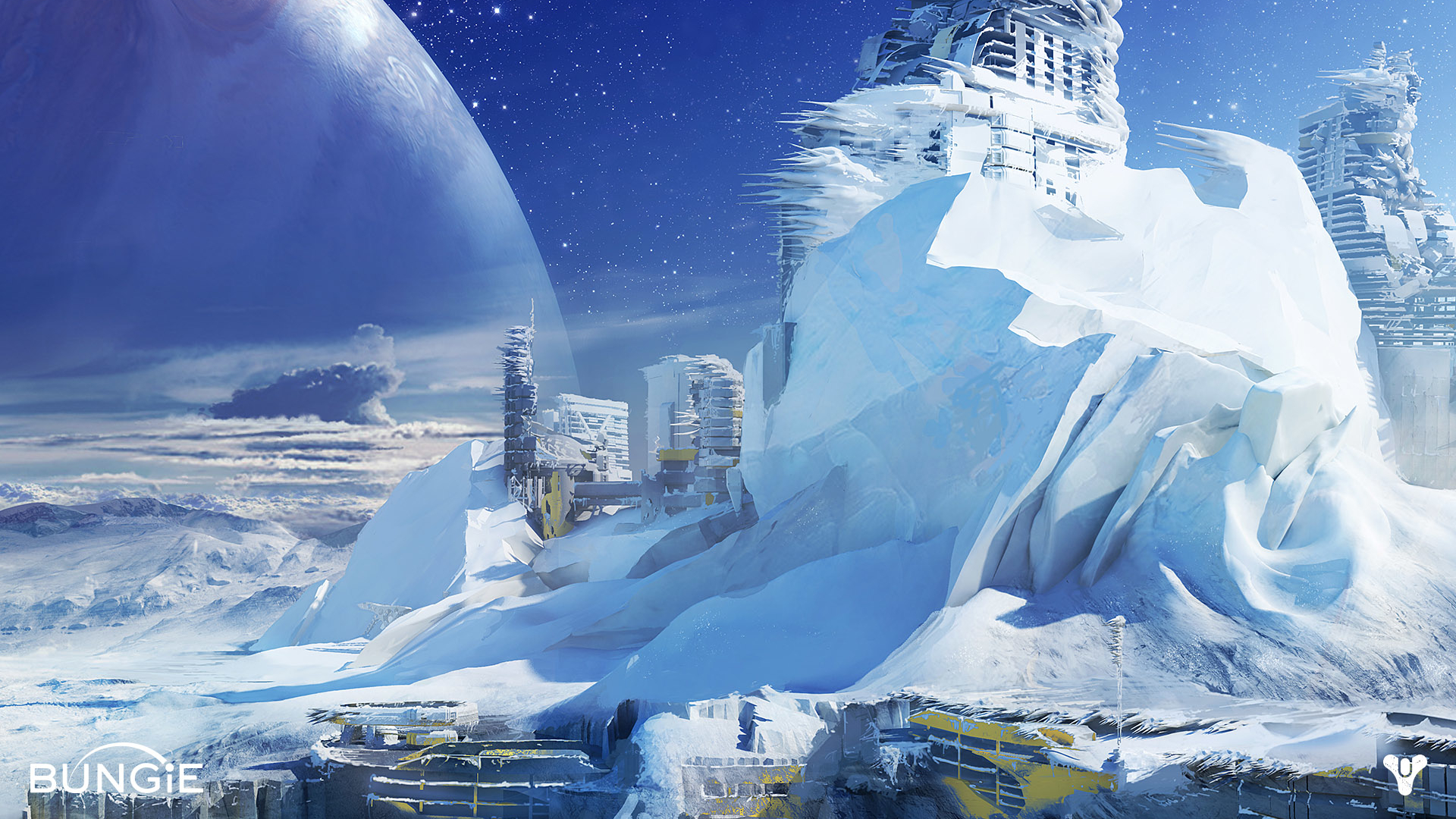
Europa, the smallest Galilean moon of Jupiter, is the newest destination to be featured in the Destiny 2 expansion Beyond Light, released in November of 2020. Probably one of the more important destinations in Destiny, Europa is a barren arctic environment swirling with strong winds and ice storms. Weather-beaten outposts dot the landscape, ruined by neglect, or destroyed by ongoing conflict. Even though the Traveler did not terraform this moon, that did not stop the various organizations from Earth coming to Europa to uncover this world’s many secrets.
What little we do know about Europa is fascinating. The real icy moon of Jupiter does seem to harbor liquid oceans, possibly of actual water, covered with a thick layer of water-ice. The red veins seen from images of Europa captured by NASA indicate the presence of heavy minerals in the ice. Europa in Destiny 2 also shows similar reddish hues in chunks of ice around the explorable areas, which is consistent with our own real-life discoveries. Some studies also presume that Europa could be home to some form of life in its liquid oceans given the correct conditions.
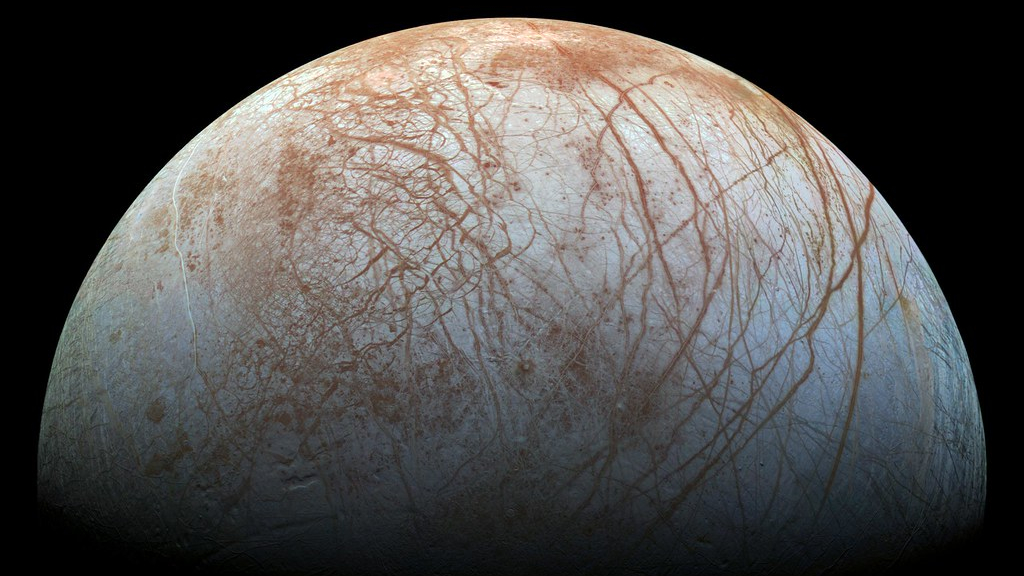
The representation of Europa in Destiny 2 is based on real ideas with some artistic license mixed in. For example, the constant blizzards are a great tool for conveying mood in the video game, but in reality there is no observable wind on Europa. Facilities like the Braytech labs and Deep Stone Crypt would likely be how we could live on Europa long-term, with buildings that penetrate down into the ice and utilize the contents of the ice to generate oxygen for air to breathe. The buildings would be sealed by airlocks, and climate control systems would assist in creating livable conditions for people.
Science fact vs science fiction
While a lot of Bungie’s depictions of these places are largely fantastical ideas of colonized worlds blessed by some space-magic, they’ve clearly done their homework here on how to create viable living spaces in these hostile environments. You can tell there has been some real thought put into the back story, weaving in existing interpretations of how humankind would colonize these worlds using advanced technology, as well as what a little help from an omniscient being would do.
It’s safe to say that Bungie know what they’re doing when it comes to blending science and fantasy – they are, after all, the original creators of the famous sci-fi military franchise Halo, which has been going strong for 20 years. Their depictions of a future well out of our grasp is grounded in real science and Destiny 2 reveals what we find to be a great execution of what our off-Earth endeavors would look like (failures and all). Of course, there are some embellishments to build up a bit more excitement and interest, but this has helped to create this unique Destiny universe of that’s definitely worth exploring.
If you want to learn more about Destiny 2, then you’ll want to read the science behind Destiny 2’s Lorentz Driver weapon. If that hasn’t quite quenched your thirst for knowledge, then check out the 5 most realistic space movies too and see how scientifically accurate they really are.
Join our Space Forums to keep talking space on the latest missions, night sky and more! And if you have a news tip, correction or comment, let us know at: community@space.com.
Get the Space.com Newsletter
Breaking space news, the latest updates on rocket launches, skywatching events and more!

